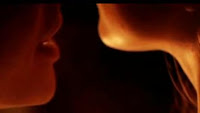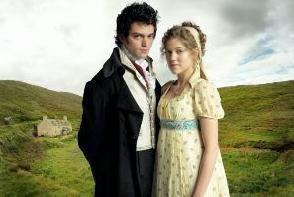
Full Title: A Midwife's Tale: The Life of Martha Ballard, Based on Her Diary, 1785-1812
By Laurel Thatcher Ulrich
I kept journals fairly religiously while I was in high school. They are so full of rampant sentimentality (i.e. boy craziness) that reading them now makes me want to fetch the lighter fluid and matches straightaway.
Martha Ballard avoided this problem neatly by keeping her entries brief, factual and largely devoid of emotion or interpretation. She kept careful track of her work as a midwife, her gardening and household chores, and the comings and goings of friends, family, and neighbors; basically, the daily happenings in her life. Consequently, her diary was long dismissed as “not of general interest” and “trivial and unimportant” by historians. Ulrich, however, chose to take another look, and the result is A Midwife’s Tale, winner of the Pulitzer Prize.
On its most basic level, this book is a fascinating look at life in Maine in the decades following the American Revolution. Each chapter uses a passage from Martha’s diary to explore a specific topic: midwifery, the religious environment, the legal system, the role of women, marriage, and so on. History buffs will certainly enjoy this glimpse into day-to-day (and, in particular, a woman's) life in Martha’s time and place.
On another level, however, this book is a detective story. The format of the book – each chapter is an excerpt from the diary, followed by Ulrich’s commentary – allows us a glimpse into the brilliant detective work that Ulrich undertook to craft this book.
Take, for example, the sentence, “Was Calld in at Mrs Husseys.” To a casual reader, Martha simply visited her friend Mrs Hussey, nothing more. Ulrich knows better. Throughout the diary, Martha speaks of going to Mr Bullins or Capt Coxes or Mr Goodins. In Martha’s world, houses belong to men. So why refer to the house as belonging to Mrs Hussey? Ulrich can tell you why (and she does, in the Introduction, so you don’t have to read far), and she tells you how she came to her conclusion so that we can share in the feeling of discovery.
I enjoyed Ulrich’s writing style. It was scholarly (lots of footnotes, for you footnote lovers!), but readable and laced with humor. I did find it impossible to keep track of all the people in the book; Martha did know most of the people in town after all. Ulrich warns her readers in the Introduction that this can happen (and that it shouldn’t really matter), but it made my head spin nonetheless. In spite of this (very, very minor) annoyance, I quite enjoyed this book and would recommend it to all history lovers.































